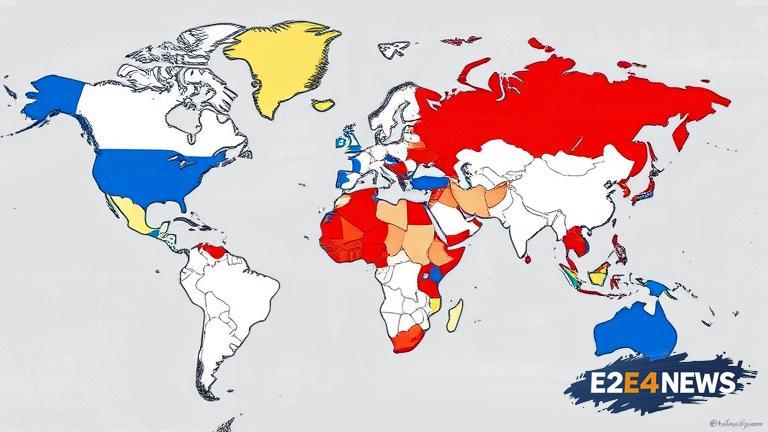The United States has been increasing pressure on China and India to stop buying Russian oil, citing concerns over Russia’s actions in Ukraine. However, both countries have significant economic interests in maintaining their oil imports from Russia. China is the largest buyer of Russian oil, accounting for over 20% of Russia’s total oil exports. India is also a major buyer, with Russian oil making up around 15% of its total oil imports. Other top buyers of Russian oil include the Netherlands, Germany, and South Korea. The US has imposed sanctions on Russian oil, but these have had limited impact on Russia’s oil exports. In fact, Russian oil exports have increased in recent months, despite the sanctions. The main reason for this is that many countries, including China and India, are willing to continue buying Russian oil due to its competitive pricing and reliable supply. The US has been trying to persuade these countries to stop buying Russian oil, but so far, they have been resistant to these efforts. One of the main concerns for the US is that Russia is using the revenue from its oil exports to fund its military activities in Ukraine. The US has also been concerned about the environmental impact of Russian oil, which is often extracted using methods that are harmful to the environment. Despite these concerns, many countries are likely to continue buying Russian oil due to their significant economic interests. In fact, China has been increasing its oil imports from Russia in recent months, and India has also been looking to increase its oil imports from Russia. The Netherlands, Germany, and South Korea are also likely to continue buying Russian oil, due to their significant economic interests in maintaining their oil imports from Russia. The implications of the US pressure on China and India to stop buying Russian oil are significant. If these countries were to stop buying Russian oil, it could have a major impact on the global oil market, leading to higher prices and potential shortages. However, it is unlikely that China and India will stop buying Russian oil, due to their significant economic interests. Instead, they may look to diversify their oil imports, by increasing their imports from other countries, such as Saudi Arabia and Iraq. The US may also look to increase its own oil production, in order to reduce its dependence on foreign oil. However, this would require significant investment in the US oil industry, and it is unclear whether this would be enough to offset the loss of Russian oil. In conclusion, the global dependence on Russian oil is a complex issue, with significant economic and environmental implications. While the US has been increasing pressure on China and India to stop buying Russian oil, it is unlikely that these countries will stop buying Russian oil, due to their significant economic interests. Instead, they may look to diversify their oil imports, and the US may look to increase its own oil production, in order to reduce its dependence on foreign oil. The situation is likely to continue to evolve in the coming months, with significant implications for the global oil market. The US pressure on China and India to stop buying Russian oil is part of a broader effort to isolate Russia economically, in response to its actions in Ukraine. However, this effort has been hindered by the fact that many countries, including China and India, have significant economic interests in maintaining their trade relationships with Russia. The US has also been working to increase its own oil production, in order to reduce its dependence on foreign oil. However, this would require significant investment in the US oil industry, and it is unclear whether this would be enough to offset the loss of Russian oil. The global dependence on Russian oil is a complex issue, with significant economic and environmental implications. It is likely to continue to be a major issue in the coming months, with significant implications for the global oil market. The US pressure on China and India to stop buying Russian oil is part of a broader effort to isolate Russia economically, in response to its actions in Ukraine. However, this effort has been hindered by the fact that many countries, including China and India, have significant economic interests in maintaining their trade relationships with Russia. The situation is likely to continue to evolve in the coming months, with significant implications for the global oil market. The global oil market is a complex and interconnected system, with many different countries and companies playing important roles. The US pressure on China and India to stop buying Russian oil is just one part of this larger system, and it is unclear how the situation will evolve in the coming months. However, one thing is certain: the global dependence on Russian oil is a significant issue, with major economic and environmental implications. The US and other countries will need to work together to address this issue, and to find ways to reduce their dependence on foreign oil. This will require significant investment in the oil industry, as well as a commitment to reducing our reliance on fossil fuels. The global oil market is a complex and interconnected system, and it will take time and effort to address the issues surrounding Russian oil. However, it is an important issue, and one that will have significant implications for the global economy and environment in the coming months and years.





